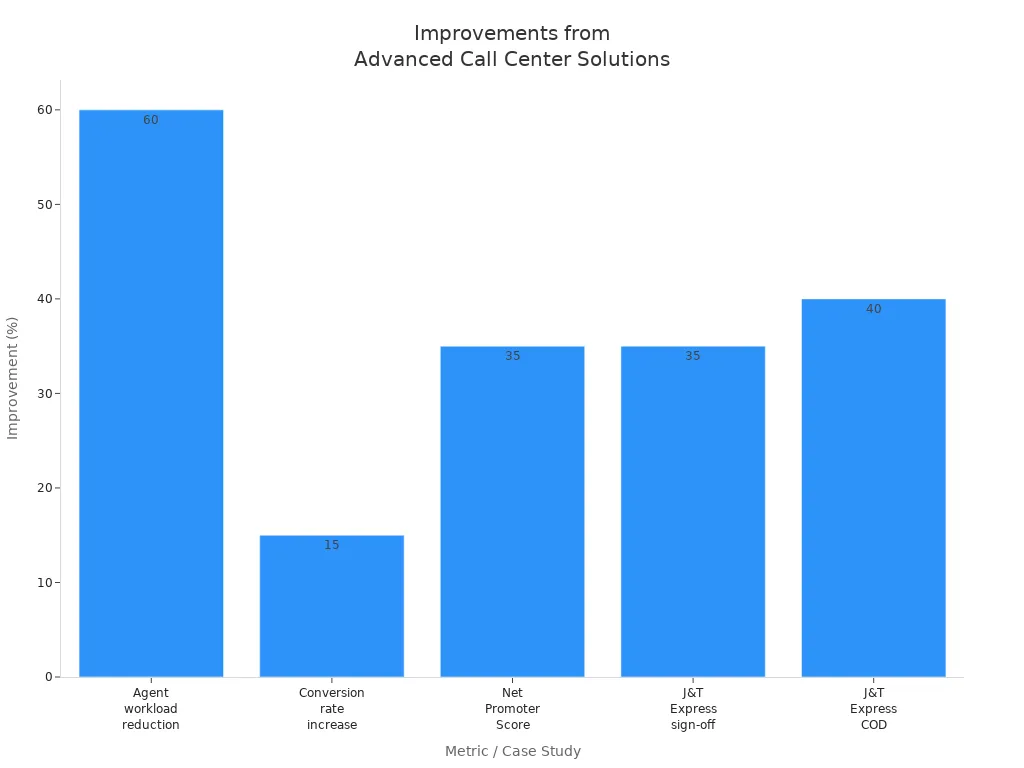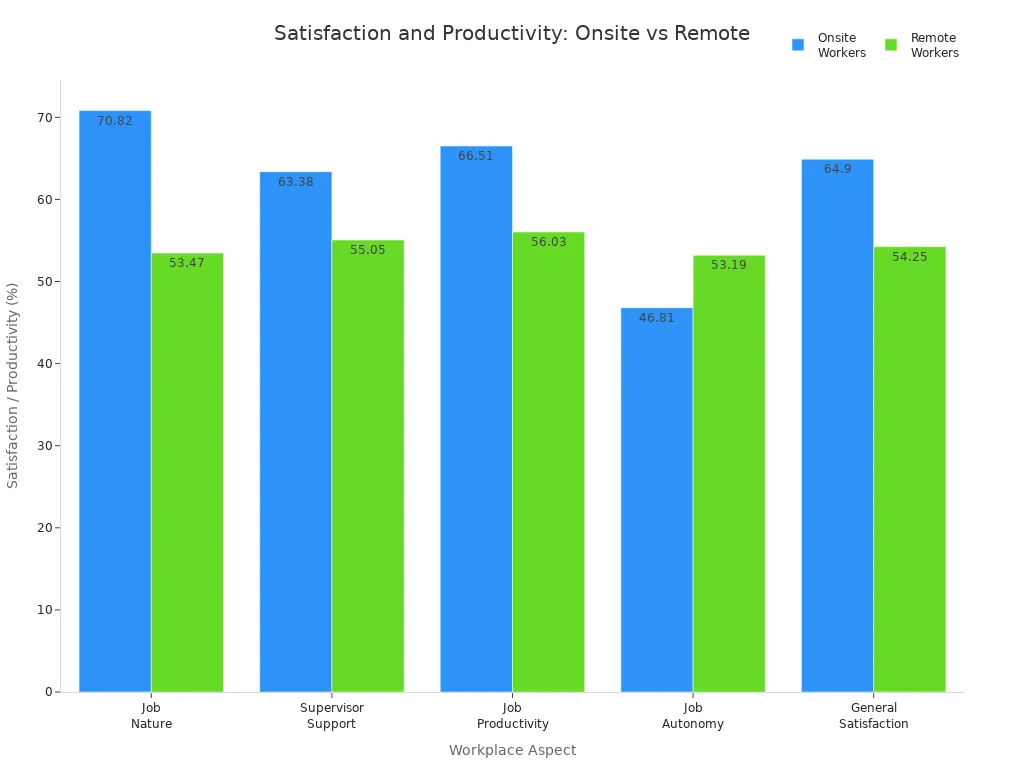Call Center Experience Key Advantages and Disadvantages

If you’re thinking about working in a call center, you probably want to know the real pros and cons of working in a call center. Many people enjoy flexible schedules, 24/7 customer service opportunities, and learning new tech like Sobot AI. A call center job helps you build skills in communication, teamwork, and problem-solving—skills you can use anywhere. Still, call center experience has challenges, like high training demands or tough customer calls. Before you jump in, it’s smart to look at both sides. Sobot call center solutions can make your experience smoother and more rewarding.

Call Center Work

Roles and Tasks
When you start working in a call center, you step into a fast-paced world where every day brings something new. As a call center agent, you handle both inbound and outbound calls. You answer questions, solve problems, and help customers with orders or technical issues. Your job often includes:
- Managing a high volume of calls each shift.
- Handling customer inquiries and resolving issues quickly.
- Processing payments, orders, and refunds.
- Keeping customer records up to date in the system.
- Collecting feedback or doing surveys.
- Using advanced tools like AI, automation, and CRM systems to make your work easier.
- Joining training sessions to keep your skills sharp.
- Staying calm and positive, even when things get busy.
These jobs put you on the front line of customer service. You help build trust and loyalty with every call. Working in a call center means you play a big part in customer support and business growth.
Skills Needed
To succeed as a call center agent, you need more than just a good phone voice. You need strong soft skills, like problem-solving, adaptability, and clear communication. Time management helps you handle many tasks at once. Professionalism and enthusiasm make every customer interaction better. Employers look for agents who show up on time, dress appropriately, and stay focused. These skills help you stand out in customer service jobs and open doors to new opportunities.
Sobot Voice/Call Center Overview

Sobot’s Voice/Call Center solution gives you the tools to shine in customer support. The platform uses AI to handle both inbound and outbound calls, so you can focus on complex issues while the Voicebot takes care of routine tasks. Sobot’s system brings together voice, chat, email, and social media in one place, making customer interactions smooth and simple. Features like AI Copilot suggest replies, summarize conversations, and autofill tickets, which cuts down on repetitive work and boosts your efficiency.
Research shows that advanced solutions like Sobot can reduce agent workload by 60% and improve customer satisfaction scores by up to 35%. You can see how these improvements stack up in the chart below:

With Sobot, you get a stable, secure, and easy-to-use platform that helps you deliver top-notch customer service and grow in your call center jobs.
Call Center Experience Pros and Cons
Advantages
When you look at the pros of call center experience, you find many benefits that can help you grow in customer service jobs. You learn skills that transfer to other roles and industries. You also get a chance to work with new technology and meet people from different backgrounds.
-
Skill Development
You build strong communication skills by talking with customers every day. You learn how to solve problems fast and stay calm under pressure. Many learning experts say soft skills like teamwork and people management are more important than ever. In fact, 91% of learning and development experts highlight these skills for call center employees. These skills help you in other customer service jobs and even outside the industry. -
Career Growth Opportunities
If you stay engaged and satisfied in your role, you are 8.5 times more likely to stay with your employer for at least a year. Engaged agents feel empowered to solve customer issues and are 3.3 times more likely to do so. Companies with engaged employees can outperform others by up to 202%. This means your call center experience can open doors to promotions and new jobs. -
Training and Knowledge
You get ongoing training that keeps you up to date with the latest customer service trends. About 31% of customers say knowledgeable agents make their experience better. Training helps you become that expert. -
Teamwork and Support
You work with a team that supports you. You share tips and learn from others. This teamwork makes your job easier and helps you grow. -
Technology and Tools
Advanced platforms like Sobot make your work smoother. Sobot’s AI-powered Voicebot handles routine calls, so you can focus on complex issues. The unified workspace brings all customer data together, making it easy to help customers quickly. You get smart call routing, real-time analytics, and global number support. These tools boost your efficiency and help you deliver great customer service experience.
Tip: Use technology like Sobot to automate repetitive tasks. This gives you more time to focus on helping customers and learning new skills.
Disadvantages
Now, let’s talk about the cons of working in a call center. While there are many pros, you also face some real challenges. These disadvantages can affect your job satisfaction and career plans.
-
High Stress and Burnout
You deal with unhappy customers and strict performance targets. This can lead to stress and burnout. Many agents feel pressure from constant monitoring and tough calls. Burnout is common, and it can make you want to leave your job. -
High Turnover Rates
Call centers have high turnover rates, often between 30-45% each year. Some reports show rates as high as 83.7% after COVID. The average tenure for call center employees is about 14 months. High turnover means companies spend a lot on hiring and training new staff. The cost to replace one agent can reach $10,000 to $20,000. -
Repetitive Tasks and Rigid Schedules
You may do the same tasks over and over. This can get boring and reduce your motivation. Rigid schedules make it hard to balance work and life. Absenteeism is common when agents feel burned out or dissatisfied. -
Limited Growth Opportunities
Some call centers do not offer clear paths for advancement. If you want to move up, you may need to look for jobs elsewhere. Lack of recognition and poor management also lower morale. -
Emotional Strain
Handling abusive or angry calls can take a toll on your mental health. You need patience and resilience to deal with tough customers.
Here’s a table that shows some key facts about call center cons:
| Aspect | Details |
|---|---|
| Average Turnover Rate | 30-45% annually (some reports up to 83.7% post-COVID) |
| Average Tenure | 14.3 months overall; 13.7 months for support roles |
| Replacement Cost per Agent | $10,000 - $20,000 |
| Main Contributing Factors | Stress, burnout, repetitive work, low pay, limited growth opportunities, poor management |
| Impact of High Turnover | Increased costs, lost productivity, lower morale, negative customer service experience |
Note: You can manage stress by setting clear work boundaries, taking regular breaks, and practicing mindfulness. Sobot’s AI tools help reduce routine tasks, making your job less stressful.
Sobot Customer Story: Weee!
Let’s see how Sobot’s solutions make a difference in real life. Weee!, America’s largest online Asian supermarket, faced many challenges in customer service. They had an inflexible IVR system, language barriers, and time zone issues. Their agents struggled to keep up with high call volumes and complex customer needs.
Weee! chose Sobot’s voice product to improve their call center experience. Sobot provided a flexible IVR system, an integrated workbench, and multilingual support. Agents could now route calls intelligently and manage all customer interactions in one place. Sobot’s open API made it easy to connect with Weee!’s ticketing system.
Here’s what happened after Weee! started using Sobot:
- Agent efficiency increased by 20%.
- Resolution time dropped by 50%.
- Customer satisfaction reached 96%.
Weee! agents found it easier to handle calls and solve problems. The flexible IVR and multilingual templates helped them serve customers from different backgrounds. Time zone support made it possible to help customers across regions. Sobot’s unified workspace kept all information in sync, so agents could focus on delivering great customer service.
Weee!’s story shows how the right technology can turn call center cons into pros. Sobot’s solutions help agents work smarter, reduce stress, and create better customer service experiences.
If you want to learn more about Weee!’s journey with Sobot, check out Sobot’s official customer story.
Pros and Cons of Call Center Remote Work

Remote Work Benefits
Remote call center jobs have changed the way you can work in customer service. You get to work from home, which means no more long commutes or sitting in traffic. This gives you more time for yourself and your family. Many people find a better work-life balance because they can handle personal tasks during breaks. You can set up your workspace the way you like, making your remote call center job more comfortable.
Here are some big benefits you’ll notice with call center remote work:
- You save money by not commuting or buying lunch every day.
- You enjoy a flexible schedule, which helps you balance work and life.
- You can work from anywhere, so you don’t have to move for a job.
- Companies can hire people from all over, making teams more diverse.
- You get more chances to work as a remote customer service representative, even if you have special needs or live far away.
- Many remote call center jobs offer better job satisfaction and less stress.
- You help the environment by not driving to work.
Remote call center jobs also let companies offer 24/7 customer service by hiring agents in different time zones. This means you can find a shift that fits your life.
Remote Work Challenges
While there are many pros, you should also know the cons of call center remote work. Sometimes, working from home can feel lonely. You might miss chatting with coworkers or getting help right away. Communication can get tricky when you rely on chat or email. It’s easy to misunderstand someone’s tone or message.
Here are some common challenges with remote call center jobs:
- Miscommunication happens more often without face-to-face talks.
- Technology issues like slow internet or dropped calls can interrupt your work.
- Too many apps or tools can make things confusing.
- It’s harder for managers to coach or support you without seeing you in person.
- You may feel a poor work-life balance if you can’t separate work from home life.
Check out this chart that shows how remote and onsite call center workers feel about their jobs:

Remote call center workers enjoy more job autonomy, but they sometimes feel less satisfied overall. You need to find ways to stay connected and motivated in your remote call center job.
Sobot Omnichannel Solution
Sobot’s omnichannel solution makes remote call center work easier for you. You get all your customer service tools—voice, chat, email, and social media—in one place. This means you don’t have to switch between lots of apps. Sobot’s cloud platform lets you work from home or anywhere with a stable connection. You can handle customer service requests smoothly, even if your team is spread out.
Sobot’s AI-powered features help you manage calls, track performance, and get coaching from your manager, even when you’re not in the office. The unified workspace keeps everything organized, so you can focus on helping customers. With Sobot, you get the flexibility and support you need to succeed in remote call center jobs.
Tip: If you want to enjoy the pros and cons of call center remote work, use tools like Sobot to stay connected, organized, and productive. This helps you balance your work-life balance and deliver great customer service from anywhere.
Who Thrives in a Call Center?
Personality Traits
You might wonder what makes someone a top performer in a call center. It’s not just about having a friendly voice. Studies show that certain personality traits help you succeed and enjoy your work. Here are the traits most linked to high performance:
- Conscientiousness: You pay attention to details and finish tasks on time.
- Agreeableness: You get along well with others and handle tough calls calmly.
- Openness to new experience: You like learning new things and adapting to changes.
- Emotional stability: You stay calm under pressure and bounce back from hard calls.
- Locus of control: You believe your actions make a difference in your results.
These traits help you handle stress, learn quickly, and connect with customers. Companies often look for these qualities when hiring for entry-level positions in customer service.
Work Styles
Your work style can shape your success and happiness in a call center. People who thrive here often:
- Enjoy clear direction but also like making decisions on their own.
- Value regular feedback and coaching to improve their skills.
- Appreciate flexible schedules, like shift swaps or part-time options.
- Like working in a positive environment where top performers get recognized.
- Use real-time feedback to adjust and do better on each call.
- Prefer using automation to handle routine tasks, so they can focus on helping people.
A supportive workplace with open communication and mental health resources helps you avoid burnout. When you feel empowered and supported, you’re more likely to stay and find growth opportunities.
| Work Style Feature | Why It Matters for You |
|---|---|
| Flexible Scheduling | Helps balance work and life |
| Coaching & Feedback | Boosts skills and confidence |
| Recognition | Keeps you motivated |
| Decision Autonomy | Lets you solve problems faster |
| Automation Tools | Reduces boring, repetitive work |
Sobot Support and Training
You don’t have to figure everything out alone. Sobot offers strong support and training to help you thrive. You get AI training services, like setting up a knowledge base and tuning conversation flows. Sobot’s team helps you teach the AI your company’s language, so it feels natural for both agents and customers. They keep improving the system, which means you see at least a 20% boost in accuracy over time.
Many agents say Sobot’s omnichannel suite makes their jobs easier. You spend less time on manual tasks and more time helping customers. This support leads to higher efficiency and lower customer churn. With Sobot, you get the tools and training you need to grow, whether you’re just starting or looking to move up.
Tip: Take advantage of Sobot’s ongoing training and feedback. It can help you build confidence and become a top performer in your call center role.
Is Working in a Call Center Right for You?
Weighing Pros and Cons
You might wonder if a call center job fits your life and career goals. Start by looking at the pros and cons. Many people enjoy flexible schedules, skill-building, and remote call center jobs that let them work from home. Others find the fast pace and strict targets stressful. To help you decide, use these tools and frameworks:
- Try a formal readiness assessment. Look at your work style, stress tolerance, and interest in customer service.
- Review quality assurance frameworks like call monitoring and service level agreements. These show what companies expect from agents.
- Check out voice-of-customer programs. They collect feedback and help you see how customers feel about their experience.
- Consider legal and contractual safeguards. Make sure you understand your rights and responsibilities.
- Explore hybrid models. Some companies mix in-house and outsourced teams for more flexibility.
- Use AI-powered tools. Platforms like Sobot and Callin.io offer smart assistants that make call center remote work easier.
If you want more data, the Bureau of Labor Statistics shares info on call center jobs and pay rates (BLS call center data).
Matching Goals
Think about your career goals before you jump into call center remote work. Many agents start by mastering customer service skills and meeting performance targets. You can move up to supervisor or manager roles if you build leadership and decision-making skills. Some agents specialize in tech support or sales, opening new remote job opportunities.
Here’s a table showing how call center jobs match common career goals:
| Career Stage | Key Goals and Focus Areas |
|---|---|
| Entry-Level | Build communication, learn call center software |
| Supervisor | Lead teams, coach agents, improve workflows |
| Specialist | Develop expertise in tech support or sales |
| Manager | Drive strategy, mentor staff, boost satisfaction |
You can also grow by building your network, earning certifications, and learning new tools like Sobot’s AI-powered workspace.
Decision Tips
Making a smart choice about call center remote work takes planning. Career counseling experts suggest these steps:
- Write down your decision and set a timeline.
- List your top priorities—maybe work-life balance, pay, or remote work experience.
- Think of all your options, including remote call center jobs and in-office roles.
- Rank your options based on what matters most.
- List any uncertainties, like pay, benefits, or schedule.
- Research each option. Use sites like Glassdoor or company reports for details.
- Score your choices or use upside-downside analysis.
- Make your best guess and prepare a backup plan.
- Take action and stay flexible.
Tip: Ask questions about benefits, training, and flexibility before you accept a job. If you get more than one offer, request extra time to decide. Always check if the company supports remote work experience and offers growth opportunities.
If you want to succeed in call center remote work, match your strengths and goals with the job. Use smart tools like Sobot to make your work from home life easier and more productive.
Working in a call center gives you easy entry, paid training, and a chance to build customer service skills. You learn teamwork, problem-solving, and time management. Still, you face stress, strict targets, and sometimes tough customer service calls. Use Sobot’s tools to make customer service smoother and less stressful. Think about your strengths and goals before you start. Try online training or read customer service blogs to boost your skills. Choose a provider like Sobot that offers automation, support, and a better customer service experience.
FAQ
What skills do you gain from call center experience?
You pick up strong communication, problem-solving, and time management skills. You also learn how to use customer service tools like Sobot’s Voice/Call Center. These skills help you in many jobs, not just in customer service.
Can call center experience help you get promoted?
Yes! If you show leadership and keep learning, you can move up to supervisor or manager roles. Many companies, including those using Sobot, offer training and support for career growth.
Is remote call center work different from working onsite?
Remote call center jobs let you work from home. You get more flexibility and save time on commuting. You may need to use cloud-based tools like Sobot’s omnichannel solution to stay connected with your team and customers.
How does Sobot improve your call center experience?
Sobot gives you AI-powered tools that handle routine tasks, so you can focus on helping customers. The unified workspace keeps everything organized. You get real-time feedback and support, which makes your job easier and less stressful.
What are the biggest challenges in call center jobs?
You may face stress, strict targets, and tough customer calls. High turnover and repetitive tasks are common. Using smart tools like Sobot can help you manage these challenges and improve your overall call center experience.
See Also
Advantages And Disadvantages Of Working Remotely In Call Centers
Understanding Medical Call Center Services And Their Key Benefits
Essential Features To Look For In CRM Call Center Software
Effective Best Practices For Managing Quality In Call Centers
The Efficient Functioning Of Automation In Call Center Operations
